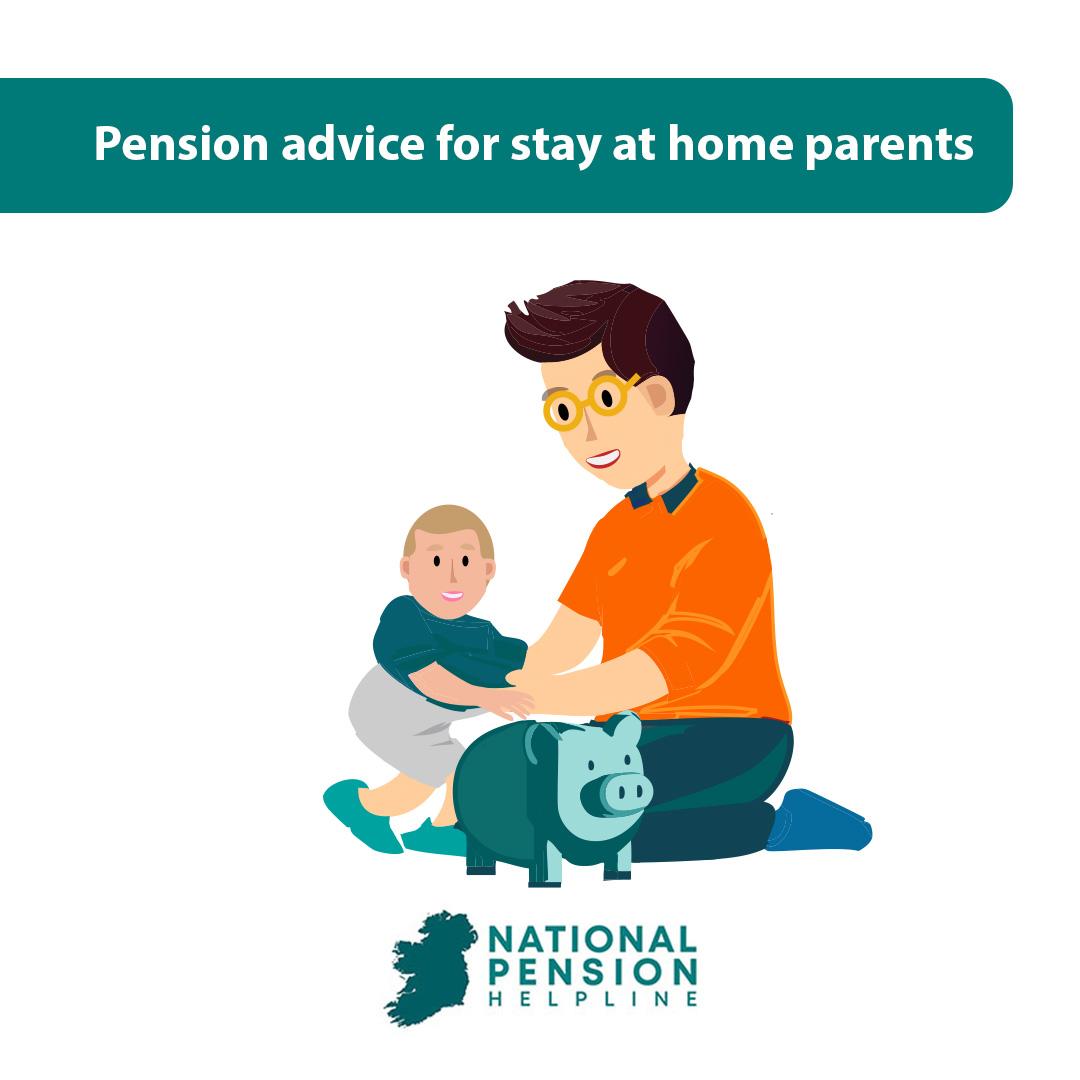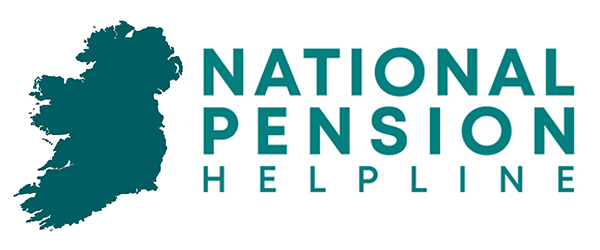Many parents make the decision to stay at home with their children, to be involved with their lives as well as avoid high childcare fees and lengthy commutes.
The 2022 Census recorded 272,318 people in Ireland who expressed looking after the home or family as their principal economic status.
Choosing to stay at home to look after children may be rewarding in itself but it requires some financial sacrifice and not just in the immediate term. Time spent at home or caring for family can have long term repercussions for your pension entitlements.
Of those who look after the home and family, the CSO estimates that 90% of females who were looking after the home or family were aged 35 and over.
This has clear implications for the pension provision of stay at home parents the vast majority of whom are women.
Pensions for stay at home parents
If you have left the paid workforce to look after children or family, you may still be able to protect your long term financial prospects with a pension.
Although you may not have access to a workplace pension, there are other options for income in retirement.
You may be entitled to a state pension, you may have access to a private pension despite not being in employment outside the home, and you may have an old workplace pension that you have previously contributed to.
State pension
Stay at home parents may be entitled to a state pension. A state pension is provided by the state as a weekly payment if you are over 66.
There are two types of state pension in Ireland:
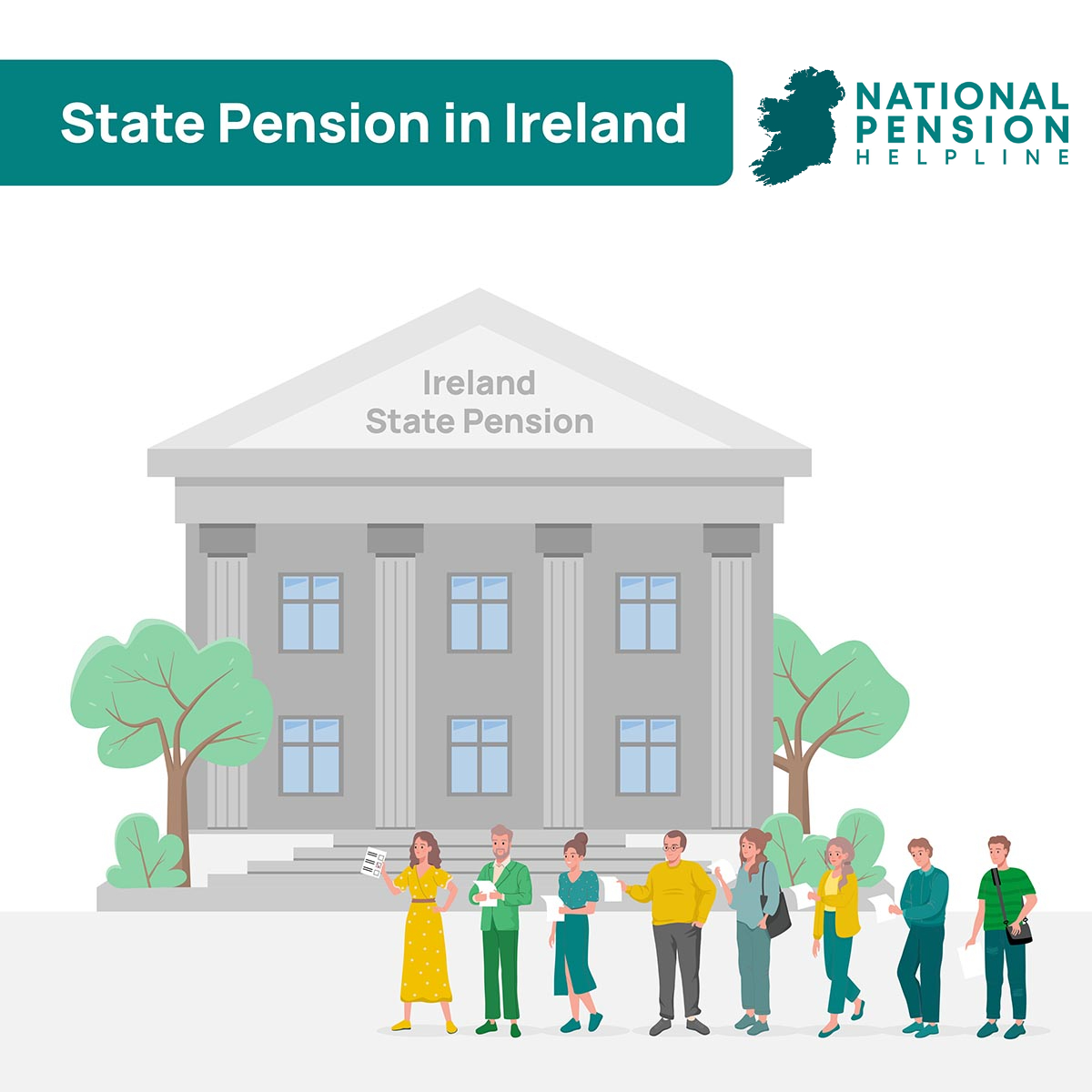
State pension (non contributory)
The non contributory state pension is available to those who are aged 66 and above, who are habitually resident in Ireland. Entitlement to a non contributory state pension is independent of your employment record as long as you are of retirement age.
This payment is a weekly payment and it is means tested.This means that if you have income, savings, or assets, these will be taken into account in calculating your entitlement to the state non contributory pension.
State pension (contributory)
The contributory state pension is a payment made to those who are aged 66 and above who have made sufficient PRSI (pay related social insurance) contributions throughout their lifetime..
This is not a means tested payment so you may qualify for this payment even if you have income, savings, or assets, even another pension from employment.
You must have made a minimum of 520 (10 years) qualifying contributions, usually from employment, to qualify for this payment. 2080 contributions (40 years) will qualify you for the maximum rate of contributory state pension.
The rate of payment (i.e. the amount of pension you receive each week) also depends on either the total number of contributions made over your lifetime or the average number of contributions you have made each year over your working life. The methods of determining pension entitlement are complex and will depend on your personal situation.
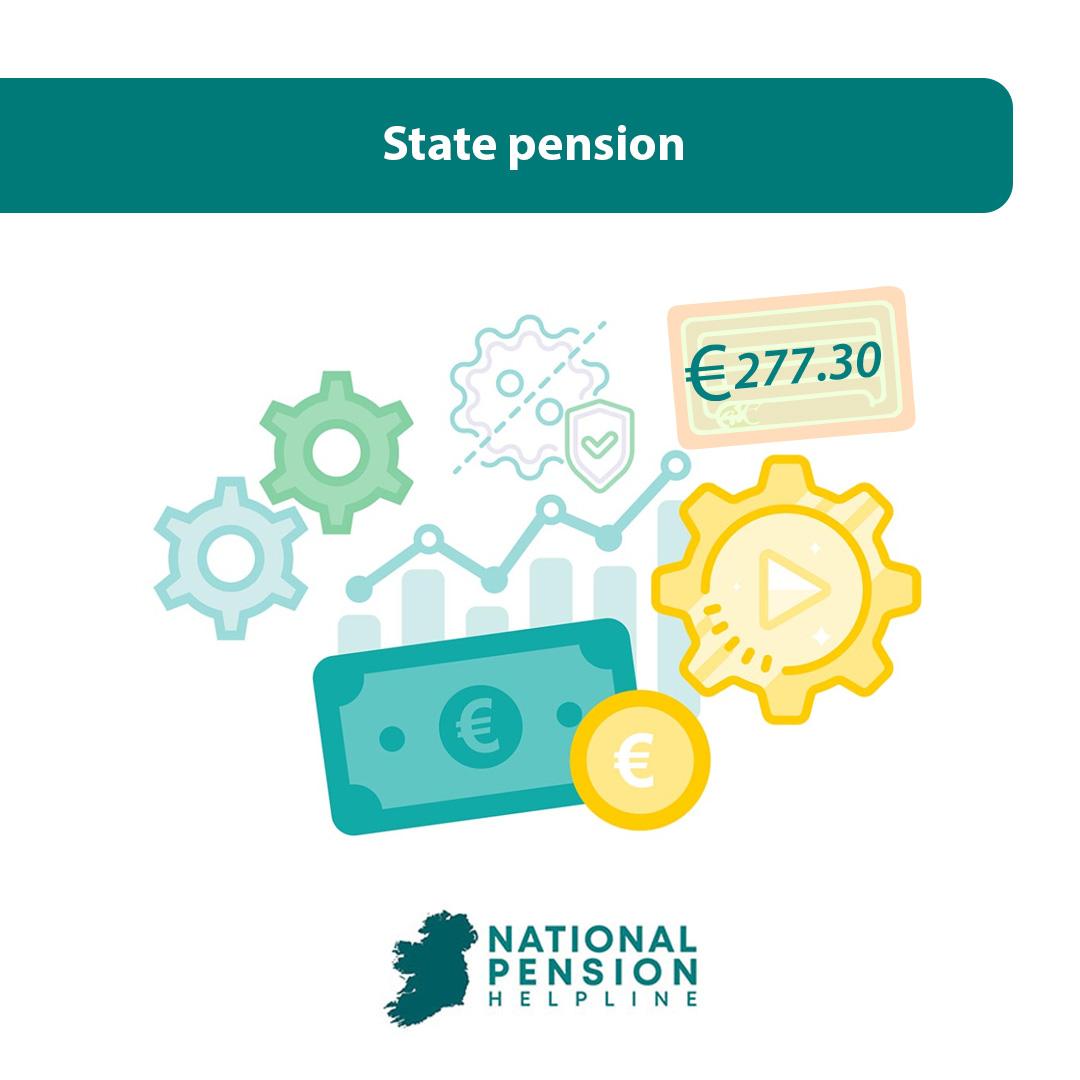
How much is a state pension?
The maximum rate of the contributory state pension is €277.30 per week. This is the personal rate. The contributory state pension is not means tested so you may receive this payment in addition to an occupational pension, if you have one.
A payment for a qualifying adult is €24.60 if they are over 66, or €184.70 if they are under 66. The payments for qualified adults are means tested so you may not be eligible for this additional payment if you or your spouse or partner has income, assets, or significant savings.
This may not be sufficient to fund your lifestyle in retirement and, as the population ages, this level of pension may not be guaranteed in the future. If you have lavish savings, you may be able to fund your retirement, however, for many people a pension is the most likely source of income in retirement.
Can I qualify for a contributory state pension as a stay at home parent?
Yes. You may be eligible to benefit from the Homemaker’s scheme or from Homecaring credits in order to boost your entitlement for a contributory state pension as a stay at home parent.
New pension rules also allow you to defer drawing down your pension up to the age of 70 if you have not made sufficient qualifying PRSI contributions. This may also be of benefit to you if you have spent time out of the paid workforce and you wish to work longer to increase your contributions.
Homemakers Scheme
The Homemakers Scheme allows someone who has spent time caring full- time to disregard a time period spent as a carer in calculating their pension entitlements.
Among other conditions, the person cared for must be:
The Homemakers Scheme is used when your pension entitlement is calculated using the Yearly Average approach. This approach is based on the average number of social insurance contributions you have made since you started working over your lifetime.
The Homemakers Scheme covers any time period from 6th April 1994 and allows you to disregard up to 20 years spent as a stay at home parent or as a carer when calculating your yearly average. In this way, your average contributions will not be reduced by time spent in caring.
The Homecaring Period Scheme
If your pension entitlement is calculated using the Total Contributions Approach (TCA), then you may benefit from the Homecaring Periods Scheme.
The Homecaring Scheme allows you to benefit from credits applied to your social insurance record, depending on several conditions, for time spent caring for either:
Up to 1,040 homecaring periods (20 years) may be included in your social insurance record. There are some conditions, one of which is that you must have been aged between 16 and pension age when you provided care.
Can I use both the Homemakers Scheme and the Homecaring Period Scheme to qualify for a pension?
No, you cannot benefit from both the Homemakers Scheme and the Homecaring Period Scheme. The approach used to calculate your pension entitlement will be the one which is more beneficial to you, depending on your circumstances, and your time spent as a stay at home parent will come under whichever scheme applies.
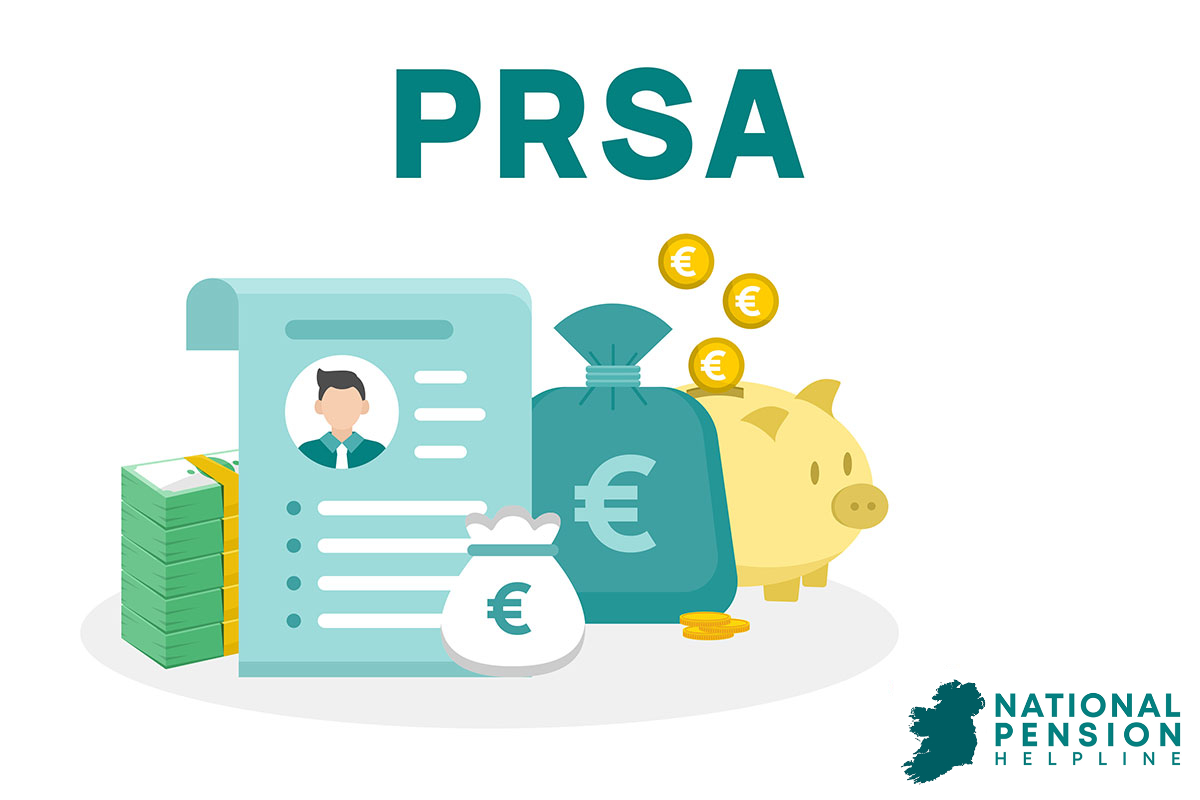
Private pensions – Personal retirement savings account.
A PRSA (personal retirement savings account) is a type of pension savings account which allows you to contribute to your pension in a flexible way. This may be a way to save for retirement, even on a relatively tight budget, for a stay at home parent.
This type of private pension is independent of employment, so if you are a stay at home parent it may be a way to save for retirement. PRSAs may be offered by insurance companies or banks and are a contract between the provider and the individual, rather than being linked to any employer.
There are standard and non-standard PRSAs.
Standard PRSAs have limits on the charges that you will face and are based on relatively low risk investments.
Non- standard PRSAs may be subject to higher charges and will typically offer a wider selection of investments.
You may contribute flexibly in a PRSA and you may use a lump sum, such as a redundancy payment or inheritance to contribute towards your retirement.
There are minimum contributions:
You can also benefit from tax relief on payments you make to a PRSA, if you pay income tax, up to certain limits based on your age and income.
You may continue to contribute to a PRSA up to the age of 75.
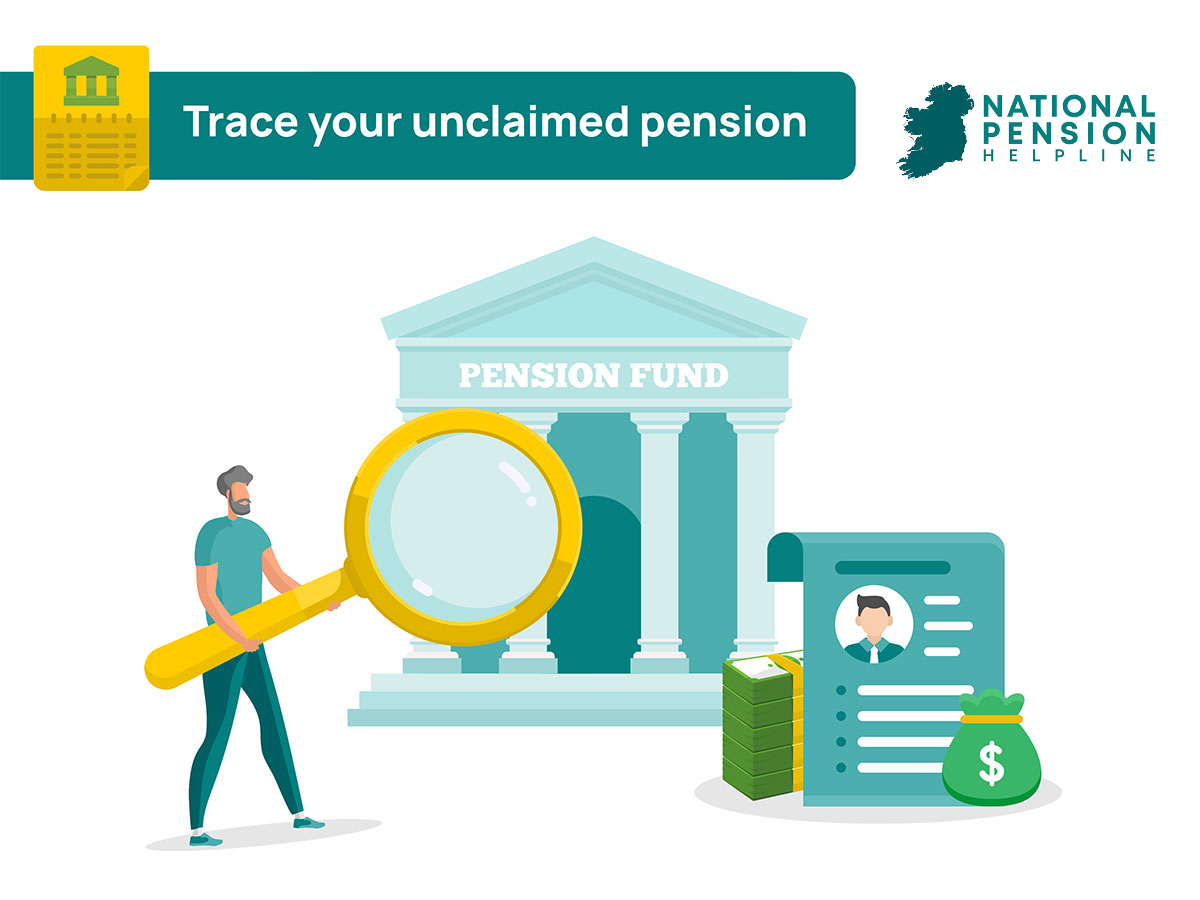
Trace pensions from previous employment.
If you have ever paid into a workplace pension associated with your previous employment then the value of the previous payments that you made to that pension remains. If you have lost track of those pensions, a pension advisor can assist you.
A pension advisor can get up to date details on old pension plans . You may be asked to provide any details that you can on your previous employment, PPS number or social insurance numbers for any other country that you may have worked in.
Old pensions can be traced, even if you worked in another country, and the value of any old pension you may have can be transferred to a new pension provider with a new pension plan.
This new pension plan may provide you with income in your retirement.

Get advice on your pension
Don’t put off thinking about your pension if you are a stay at home parent. You may have more options for your retirement income than you think.
You may be eligible for a contributory state pension, you may choose to invest in a PRSA, or you may have a pension pot from previous employment that still has value.
Our pension advisors can advise you on your pension options as a stay at home parent.Fill out our online form or give us a call and our advisors can help you.
